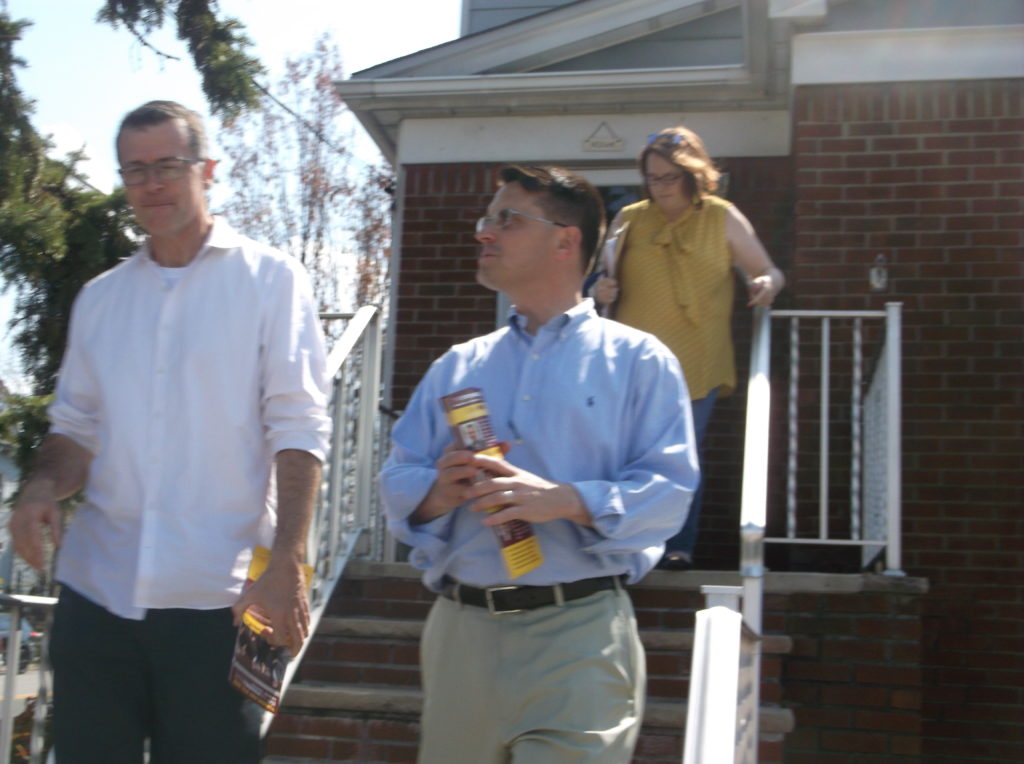The Judge's Bizarre Ruling in the O'Donnell Case

If I happened to be a shady developer, crooked businessman or a corrupt just about anything, my new hero would be Judge Mitzy Galis-Menendez.
A ruling by the judge this week essentially permits the bribing of politicians - as long as the guy or gal getting the cash is still a candidate.
The backdrop here is a corruption case dating back to late 2018 in which the state AG's office charged five politicians - three from Morris County and two from Hudson County - with taking money from a lawyer seeking work.
That lawyer, who became a cooperating witness in the case, is believed to be Matt O'Donnell of Morristown.
Of the five individuals charged, one has pleaded guilty and the case against three others is continuing.
The ruling this week concerned the fifth person charged, Jason O'Donnell of Bayonne. He was accused of taking $10,000 from Matt O'Donnell while running for mayor of Bayonne.
Since both players in this saga have the same last name, let's just call them Matt and Jason for the sake of simplicity.
In dismissing the charges on Thursday, Judge Galis-Menendez in state Superior Court observed that Jason "had nothing to offer" Matt. So, in her mind, no impropriety took place.
Later, the judge suggested that Jason had no ability to help Matt get legal work, or for that matter, anything, because at the time the cash transaction allegedly took place, Jason was not in office. And as it turned out, he lost the election in 2018.
The obvious upshot of this bizarre ruling is that a candidate can theoretically take untold amounts of cash from anyone with impunity.
So a developer looking to build a million-dollar complex can give a mayoral candidate thousands of dollars in a paper bag as long as the recipient is just running for office? As if the guy or gal getting the money would forget about it upon election.
One has to ask, does the judge in this case have no concept of someone giving a candidate money for future considerations?
Obviously, Matt knew Jason could not give him legal work when he (Jason) was not yet in office. But the payment was allegedly made to get such legal work when and if Jason became mayor. Given the fact, no election is totally guaranteed, Matt was taking the risk, so to speak, on his alleged "investment."
Many aspects of state election law are based on precisely this point.
State pay-to-pay regulations seek to limit vendor contributions to candidates to prevent those vendors from getting contracts when those candidates are elected.
The state's campaign finance disclosure requirements are based on the same principle. Contributions over a certain amount are public record so interested voters can find out who's funding the campaign of candidate X. This makes it possible to keep track of office holders who do favors for their contributors after they are elected.
The key here is to limit or disclose contributions to candidates because of future actions they may take.
Keep in mind that the above examples are legal donations - those made by check and reported to the state Election Law Enforcement Commission.
It is mind-boggling that a judge would sanction someone making a "contribution" in cash, as allegedly happened here, just because the recipient was not yet in office.
Curiously, one of the other defendants in this case, Mary Dougherty of Morristown, pleaded guilty to a fourth-degree charge of falsifying a campaign finance report. At the time, Dougherty, like Jason, was merely a candidate for office - in this case Morris County freeholder. Judging from Galis-Menendez' interpretation, Dougherty's case should have been thrown out.
People like joking about political corruption in New Jersey, which in a larger sense, is not a joke.
Court rulings that come down on the side of those who are trying to game the system don't help matters.
The state AG's office plans to appeal the ruling; good for them.






did the guy claim that donation on his ELEC form R-1 or C?......or even claim it as income to the state and fed IRS? The article didnt go deep enuf. But certainly agree about the alleged widespread NJ corruption. Union County being the example-they perfected legalized corruption..